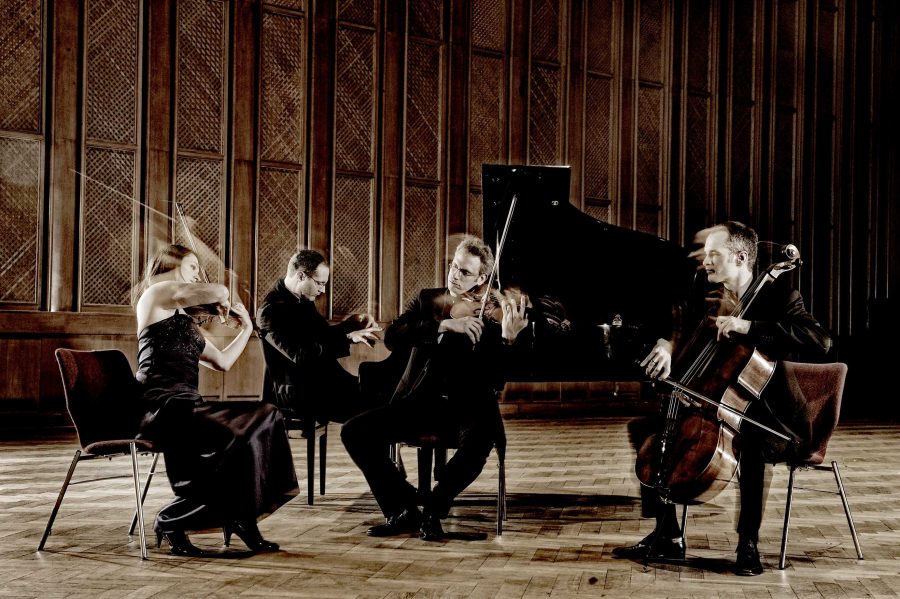Classical music comes to Wichita Falls on Feb. 14. The Faurè Quartett from Karlsruhe, Germany will perform at 7:30 p.m. in Akin Auditorium. The Perkins-Prothro Foundation brought the European group to entertain students and citizens.
“When we started 21 years ago, we realized that the formation as a piano quartet itself was already something exotic,” Erika Geldsetzer, violinist of the Faurè Quartett, said.
Since 1995, Geldsetzer, Dirk Moommertz (piano), Sasha Frömbling (viola), and Konstantin Heidrich (cello) have been taking their particular set around the world.
“It’s hard for performers to play together in a group like this. It’s cool they were able to make it work,” Desire Graves, french horn performance sophomore, said.
Specializing in classical music, the Faurè Quartett also features modern songs in their repertoire.
“I personally like a good mixture of old and new pieces, and it helps not to play the same pieces over and over again to keep it fresh and spontaneous,” Geldestzer said.
Ruth Morrow, Bolin distinguished chair of piano and music professor, said that the variety of music attracts a variety of audience members.
“If you play something that people are familiar with, it would attract more students,” Morrow said.
With this concert, the university continues the Music Series at Akin. Due to donations made by the Perkins-Prothro Foundation, this event is going to be free to all students.
“We have donations, so the university budget for these events is very little,” Morrow said. “We are honored to sponsor these happenings by providing the space.”
All members of the quartet are also professors at the universities of Berlin and Essen. Their experience with students gives them a different approach to younger audiences.
“The main thing is not to lecture students, but to bring across the energetic nature of what we do and love. It’s more often convincing than a ‘professional’ lecture,” Geldsetzer said.
Their tours over the years have brought them to cities with a variety of audiences, but they reserve space to work with students.
“Thirty or 40 years ago, classical music was a very important part of most people’s households, and many of them learned to play an instrument. That’s not the case nowadays,” Geldsezter said. “We work with young people because we want to show them that classical music, in general, and especially chamber music, is something very lively and it doesn’t necessarily mean Mozart and Beethoven.”
Tickets are available here.















